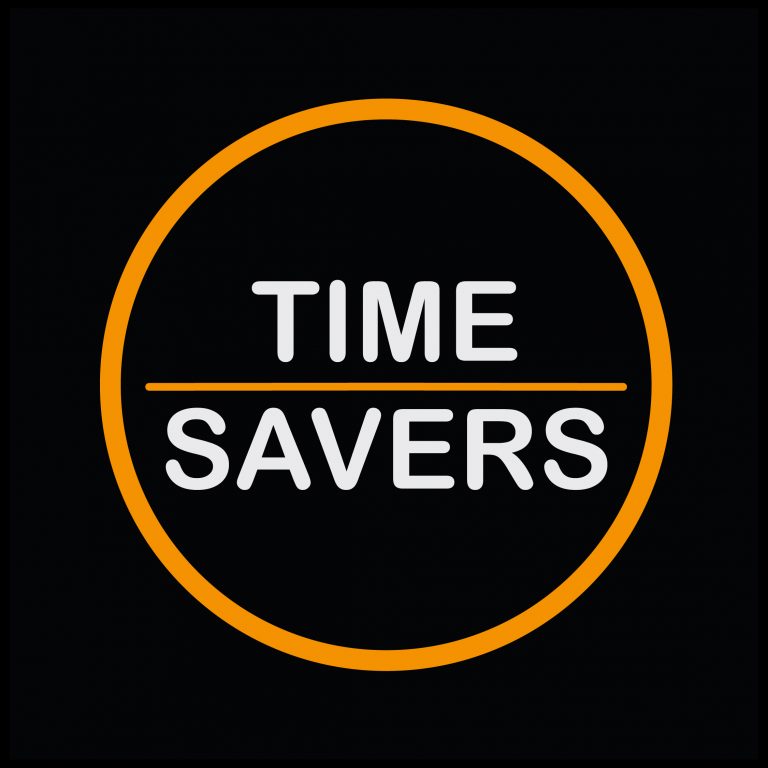Meet Our Heroes
Delitek isn’t your typical electronics store.
Based in Malta and serving customers across the entire European Economic Area, Delitek operates in one of the most competitive and cutthroat niches in ecommerce: consumer electronics. They’re a dropshipping business, which means they don’t hold inventory. Instead, they partner with suppliers and manufacturers to deliver everything from everyday carry tech to the latest gadgets straight to customers’ doors.
But here’s what makes them different: while most dropshippers race to the bottom on price and sacrifice service, Delitek built their entire brand around being better than the competition. They offer a price match guarantee, unique gifts with every order, free shipping on orders over €100, and support channels with incredibly low SLAs (service level agreements). In other words, they respond fast, care deeply, and make sure customers feel taken care of.
They’re not just selling products. They’re building trust in a market where trust is hard to come by.
After a recent rebrand, Delitek came to Digital Time Savers with a clean slate and big ambitions. They had a new name, a new identity, and a fresh start. But they also had zero advertising running, no organic presence, and a modest monthly ad budget of just €1,000.
Their founder, Tristan Agius, had a vision: to become a profitable, scalable online store that could compete with national giants like Computeruniverse.de, Scan.co.uk, and even Amazon.de. He wanted to build a loyal customer base, expand the product catalog, and eventually develop a network of corporate clients and wholesalers who trust Delitek as their go-to supplier.
But first, they needed customers.
Their Goals
Delitek’s goals were ambitious but grounded. Tristan wasn’t chasing vanity metrics or overnight success. He wanted sustainable, profitable growth that could scale over time.
Here’s what he was after:
- Build a profitable and scalable online store that could compete in the crowded electronics space
- Establish a strong brand identity and customer base through targeted marketing and exceptional service
- Generate consistent sales through Facebook, Instagram, and Google Ads
- Prove the model works with a small budget before scaling up
- Attract both individual customers and corporate buyers who need bulk tech products or ongoing supply
Tristan understood that in the electronics game, margins are tight and competition is fierce. He couldn’t out-price Amazon. But he could out-service them. And he could target the right people with the right message at the right time.
That’s where we came in.
The Challenge
When Delitek first reached out, they were starting from scratch.
The rebrand was fresh. The website was live. The product catalog was solid. But there was no traffic, no sales momentum, and no paid advertising history to build on. They had never run ads before, which meant we didn’t have any data to work with. No pixel history. No audience insights. No proven creatives or messaging.
On top of that, they were entering a hyper-competitive niche. Electronics is one of the hardest categories to advertise in. Why? Because:
- Everyone sells the same stuff. Most electronics products are commodities. Customers can find the same item on Amazon, eBay, or a dozen other sites.
- Price sensitivity is extreme. People compare prices obsessively. A €5 difference can make or break a sale.
- Trust is everything. Shoppers are wary of dropshippers. They’ve heard the horror stories: slow shipping, poor customer service, sketchy return policies.
- Ad costs are high. Tech products attract heavy competition on Facebook and Google, which drives up CPMs and CPCs.
And Delitek’s budget? Just €1,000 per month to split between Facebook, Instagram, and Google Ads.
Most agencies would balk at those numbers. But we saw an opportunity.
Because while Delitek couldn’t compete on price alone, they could compete on value. Their price match guarantee, free shipping threshold, unique gifts, and stellar customer support were all differentiators. We just needed to communicate that in a way that resonated with their ideal customer.
The challenge wasn’t just getting clicks. It was getting the right clicks from the right people, and converting them into loyal customers who would come back again and again.
Our Process
Phase One: Foundation and Strategy
Before we launched a single ad, we took time to understand Delitek’s business from the inside out.
We studied their competitors. We analyzed their product catalog. We reviewed their website and identified areas for improvement. We built out audience personas based on Tristan’s description of his ideal customer: tech-savvy, price-sensitive, convenience-focused, trend-conscious online shoppers who prefer the ease of ecommerce over visiting physical stores.
We also worked with Tristan to clarify his unique value proposition. Yes, Delitek offers competitive pricing. But the real story was in the experience. Fast support. Price matching. Gifts with orders. Free shipping over €100. These weren’t just perks. They were proof points that Delitek cared about customers in ways that Amazon and big-box retailers didn’t.
Once we had that clarity, we mapped out a lean, aggressive strategy:
- Start with Facebook and Instagram Ads to build awareness and drive initial sales
- Install and optimize the Meta Pixel to start collecting data from day one
- Test multiple ad creatives and angles to find what resonates
- Use a small daily budget to maximize learning while controlling spend
- Layer in Google Ads once we had conversion data to capture high-intent search traffic
The goal for Phase One was simple: prove the model works. Get sales. Build momentum. Collect data.
Phase Two: Meta Ads Launch and Testing
We launched Delitek’s first-ever Facebook and Instagram campaigns with a focus on testing.
We built out three core audience segments:
- Tech enthusiasts and gadget lovers who follow tech blogs, YouTube channels, and electronics brands
- Online shopping aficionados who frequently buy from ecommerce stores and value convenience
- Budget-conscious buyers who engage with deal sites, discount codes, and price comparison tools
For each audience, we created multiple ad variations. Some emphasized the price match guarantee. Others highlighted free shipping. A few showcased trending products with eye-catching visuals and urgency-driven copy.
We used carousel ads to feature multiple products, single-image ads to spotlight bestsellers, and video ads to build trust and explain Delitek’s value proposition in a more dynamic way.
The budget was tight, so we couldn’t afford to waste spend on underperforming ads. We monitored performance daily, killed losers fast, and doubled down on winners.
Within the first two weeks, we identified our strongest angles:
- “Find it cheaper? We’ll match it.” This resonated with price-sensitive shoppers and positioned Delitek as transparent and confident.
- “Free shipping over €100 across the EU.” This created a natural incentive to add more items to the cart.
- “Unique gifts with every order.” This added a layer of delight and differentiation that big retailers couldn’t match.
We also discovered that carousel ads showcasing product variety performed best for cold audiences, while single-product ads with urgency (limited stock, trending item) worked better for retargeting.
By the end of Phase Two, Delitek was seeing consistent daily sales. The pixel was collecting valuable data. And we had a solid foundation to scale.
Phase Three: Google Ads and Search Capture
Once we had conversion data from Meta, we launched Google Ads to capture high-intent search traffic.
We started with Google Shopping campaigns, which allowed us to showcase Delitek’s product catalog directly in search results. This was critical because when someone searches for “buy wireless headphones EU” or “best budget laptop Malta,” they’re ready to buy. They just need to find the right store.
We also built out Search campaigns targeting branded competitor terms, product category keywords, and location-specific queries. Examples:
- “electronics store Malta”
- “buy tech online EU”
- “affordable gadgets free shipping Europe”
Because Delitek’s profit margins were tight, we had to be strategic with our bids. We focused on high-converting keywords and used negative keywords aggressively to avoid wasting spend on irrelevant clicks.
We also set up Smart Shopping campaigns, which used Google’s machine learning to automatically optimize bids and placements. This allowed us to stretch the budget further and capture sales we might have missed with manual bidding alone.
Within three weeks of launching Google Ads, Delitek was appearing in search results across the EU. Their ROAS on Google quickly outpaced Facebook, which made sense given the higher intent of search traffic.
Phase Four: Retargeting and Optimization
By this point, Delitek had a steady flow of website visitors. But like most ecommerce stores, not everyone converted on their first visit.
So we built out aggressive retargeting campaigns on both Meta and Google.
On Facebook and Instagram, we created dynamic product ads that showed visitors the exact products they viewed on the site. We also built custom audiences for people who added to cart but didn’t purchase, and hit them with urgency-driven messaging: “Still thinking about it? Complete your order and get a free gift!”
On Google, we used remarketing lists for search ads (RLSA) to bid higher on people who had already visited the site. We also set up display retargeting to keep Delitek top-of-mind across the web.
At the same time, we optimized the website experience. We worked with Tristan to improve load times, simplify the checkout process, and add trust signals like customer reviews, security badges, and clear shipping info.
These tweaks had a compounding effect. As the site converted better, our ad performance improved. As our ad performance improved, we could spend more efficiently. And as we spent more efficiently, we could scale.
Phase Five: Scaling and Diversification
By month three, Delitek was profitable. Their ROAS was strong. Their customer acquisition cost was sustainable. And Tristan was ready to scale.
We increased the ad budget incrementally, testing new audiences and expanding into lookalike segments based on past purchasers. We also introduced new creative formats, including user-generated content, testimonial-style videos, and seasonal promotions.
On Google, we expanded into Performance Max campaigns, which allowed us to show ads across Search, Display, YouTube, Gmail, and Discover all from a single campaign. This gave us massive reach without adding complexity.
We also began testing email marketing and SMS campaigns to re-engage past customers and drive repeat purchases. Ecommerce businesses live and die by repeat purchase rate, and Delitek was no exception.
As the business grew, so did Tristan’s ambitions. He started reaching out to corporate clients and wholesalers, leveraging the credibility and momentum from the ecommerce side to open up B2B opportunities.
Results
In just three months, Delitek went from zero to profitable, scalable, and positioned for long-term growth.
Here’s what we achieved:
- Generated over €45,000 in revenue from a combined ad spend of €3,000 across Meta and Google
- Achieved a blended ROAS of 4.2x, with Google Ads hitting 5.8x and Facebook stabilizing at 3.6x
- Drove 12,000+ website visitors from paid traffic alone
- Converted 680+ customers in the first 90 days
- Built a retargeting audience of 8,500+ engaged users for ongoing nurture
- Increased average order value to €92, just below the free shipping threshold, encouraging cart upsells
- Established a foundation for B2B outreach with consistent ecommerce proof and momentum
But the numbers only tell part of the story.
Delitek didn’t just grow. They transformed. They went from a rebranded startup with no paid marketing experience to a recognized player in the European electronics space. They built a customer base that trusts them. They proved that a small budget and smart strategy can compete with giants.
And they did it all while staying true to their values: exceptional service, transparent pricing, and a customer-first approach.
Tristan’s vision is coming to life. And we’re just getting started.






